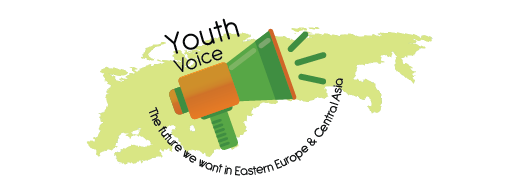The gender system has a great impact on the on world today. It can be approached from different perspectives. For example there are countries where the basic human rights of women are not respected not to mention their reproductive rights. Women are discriminated by the society that surrounds them, in this case by their husbands, fathers, and brothers and generally by men. They get married at a very early age because their fathers decide so, the children they give birth to are considered to be “property” of their fathers; if the child is a girl she is discriminated just like her mother. Women are not allowed to express their opinions and to participate in the social life. They are supposed to undertake heavy physical work. In this situation their health is absolutely neglected. They are afraid to admit that they have health problems, because then they would have to visit a doctor. Most of the times they are ashamed to talk about their problems, and they prefer to endure the situation. The reproductive health of these women is extremely precarious. There are cases when women are not allowed to use methods of contraception as this is against their religion.
In Moldova women do not deal with gender related issues as in the above-mentioned cases (except maybe when it comes to religion, but in very few cases). Instead they deal with other problems. Due to the unstable and poor economic situation of our country, women are the ones who assume the risk of migrating to highly developed countries, in the search of a well-paid job. Why women? Because there are more jobs for women than for men. In this situation women are more likely to become victims of human trafficking, as they go to work through illegal methods in the guest country. Being an illegal in a foreign country, does not allow them to have access to quality medical care and therefore they suffer from various health problems, including reproductive health problems. I would also like to mention that in the rural areas of my country, women are more discriminated than in urban areas.
There should be more human rights programmes created, designed with respect to the gender issues should address specific features of the region where it is decided to be implemented, as different regions may reflect different reproductive health (RH) needs. Before designing the programme it is important that we identify the main socio-cultural issues of the region, assess the challenges and the goals for implementing the programme, study and consult the statistics. True and accurate information on the gender issues specific to the region can only be obtained by going in the field, seeing the real situation. It is important to do so, because in many cases numbers and situations are exaggerated, or vice-versa their impact is being minimized in order to hide some social problems. For example, none of the women who live in societies where they are considered “slaves” of men shall admit that they are truly in these positions.
In order to achieve good results while implementing the programmes it is important that a survey is undertaken before its implementation, so that the degree of involvement and acceptance of the programmes are estimated. It is also a good opportunity to discover the true needs of the clients of the future programme. It is important that the programme does not cause any moral prejudices to the society where it is implemented, and it is implemented in cooperation with the society.
In utilizing the gender approach the focus is not on individual women and men but on the system which determines gender role/responsibilities, access to and control over recourses and decision-making potential. Gender dimension are important to eliminate gender discrimination, promote gender equity and equality. Taking these into consideration it is important to provide at least RH medical services were possible. And it would also be of great importance involving men in activities related to gender aspects. It is also important to address the gender-based violence in any culture, to raise public awareness through policies and campaigns. Nevertheless I dare to insist that women should not ask and wait, remaining passive objects rather than subjects of will and action, but rely on themselves first of all and become effective decision-makers in order to change the established hierarchy of power from the point of view of strategic women interests. How could it look like?
Hard task always requires hard work and the position of a decision maker is something permanently earned, not a door prize handed out to somebody who had attended a few leadership trainings. As far as nobody invites to decision-making circles women have to realize a high degree of competition in this area and show the best possible level. A strong and applied desire to become a real decision maker or a valid stakeholder means life-long study both formal and informal, intensive and extensive reading of scholarly literature in two or more languages, progressive critical and innovative thinking. It needs impressive theoretical knowledge combined with serious practical experience, specific mindset of a responsible non-conformist and important ability to persuade unpleasant people or take risk to confront them. A sine qua non for a decision maker is the sober sense of a clear-sighted reality, its many limitations and encouraging possibilities along with a habit to note seemingly irrelevant details while observing a bigger picture. All these qualities are possible within a framework of social asceticism when one has not to spend invaluable time on mindless sharing selfies online but to cleverly invest time, acquiring new level of cognitive perception, getting more expertise and successfully revising old ways of solving problems. As a final note, a future decision maker should always keep in mind that being professional is not an everlasting status but a process of an every-day self-improvement which includes reinforcing of intellectual capacity, rising analytical skills and keeping fearless civic devotion for defending and enhancing women rights.
 Sanda-Daniela Alexeiciuc – For more than 12 years I worked with government, associations, NGO and advocacy groups, local communities, schools. As an advocate, trainer and facilitator I have achieved considerable long-lasting results both within local youth and young activists abroad through campaigning and advocacy events all over the world. So far I have conducted more than 60 events in 42 countries on such topics like gender equality, sexual and reproductive health, human rights etc.
Sanda-Daniela Alexeiciuc – For more than 12 years I worked with government, associations, NGO and advocacy groups, local communities, schools. As an advocate, trainer and facilitator I have achieved considerable long-lasting results both within local youth and young activists abroad through campaigning and advocacy events all over the world. So far I have conducted more than 60 events in 42 countries on such topics like gender equality, sexual and reproductive health, human rights etc.
As Director of CEDES Association of Development of Healh and Education in Moldova, YouAct European Youth Network on Sexual and Reproductive Rights Steering Committee- Policy responsible, expert and researcher I have taken active part in important projects with national and international organizations on various levels: from practical tips to policy making.



Get Social